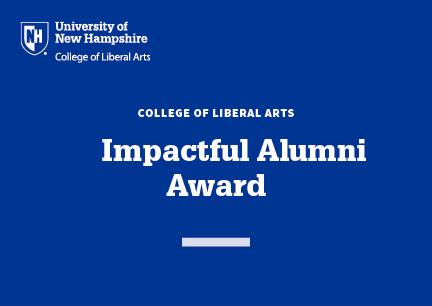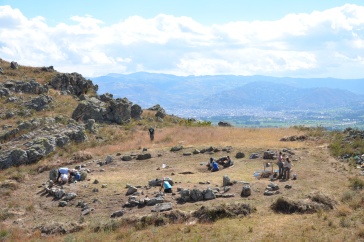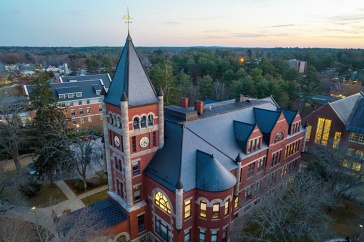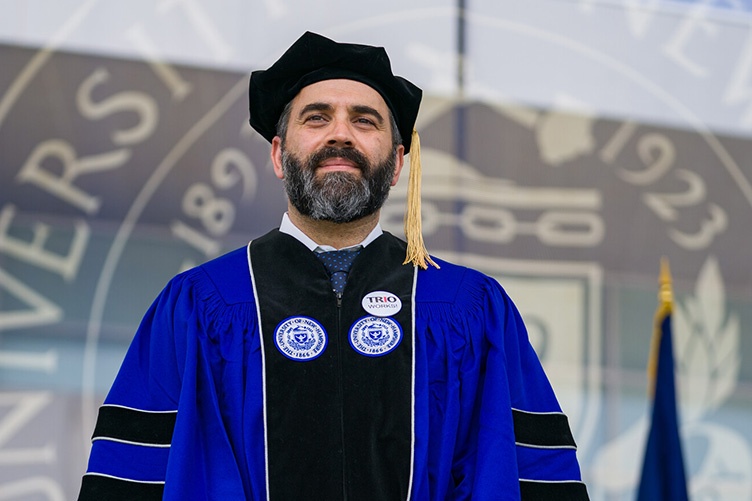
Zackaria "Zack" Bazzi at the May 2022 College of Liberal Arts commencement where he received the COLA Impactful Alumni Award
Zack Bazzi is the 2022 recipient of the inaugural COLA Impactful Alumni Award, which recognizes a liberal arts graduate who has demonstrated excellence in making a significant impact on the lives of others.
Nominations are accepted by November 15 each year; a winner is selected during the spring term.
On paper, Zack Bazzi '08 lives in Manchester, N.H. In reality, the Lebanon-born immigrant to the United States has earned the right to call himself a citizen of the world. Bazzi and his mother immigrated to the U.S. when he was 10 years old. Living in Watertown, Mass., Bazzi’s mother struggled early on but eventually learned English and worked as a beautician, a profession from which, her son proudly notes, “she is now retired and living her best life in Florida.”
An indifferent student growing up, Bazzi decided to enlist in the U.S. Army. “People enlist for different reasons,” Bazzi observes. “Of course, they love their country, but there's usually more to it than that. Oftentimes, people join to experience travel, gain leadership skills, get college benefits and grow up a little more.”
Bazzi enlisted for all of these reasons. Before he separated from the military, Bazzi would serve four years of active duty with the 101st Airborne Division and six years with the New Hampshire National Guard, deploying a total of four times as an Army infantryman to Bosnia, Kosovo, Iraq and Afghanistan. While at UNH and serving in the National Guard, he studied psychology along with a heavy dose of political science and international affairs, often reading about the same places and same events he had lived through as a solider.
“I learned a great deal of history, culture and geopolitics in my 20s with a rifle strapped to my shoulder,” said Bazzi. “The best university for leadership can be found serving as a U.S. Army infantryman. Leading by example, never asking somebody to do something you’re not willing to do yourself, applying yourself to the utmost of ability towards the task at hand and, although it sounds cliché, paying attention to detail.”
“The academic experiences I attained at the University of New Hampshire put me in a great place to do the kind of work I do now."
UNH gave the once indifferent student the opportunity to flourish as a scholar. He seized the opportunity and graduated with a degree in psychology. “The academic experiences I attained at the University of New Hampshire put me in a great place to do the kind of work I do now,” he said.
That work took Bazzi back into the territory where he was born and served as a soldier — a territory that spans from Egypt to Tajikistan and includes war torn places like Iraq, Syria and Afghanistan. Bazzi co-founded an NGO called TentED, an organization dedicated to educating children displaced by war. From there, he was recruited to become the regional director of Middle East and Central Asia for Spirit of America (SoA), a U.S. nonprofit working alongside troops and diplomats to improve lives and strengthen American relationships with allies and partners.
Over the last seven years, Bazzi has worked on more than 200 SoA initiatives that have made a positive impact on thousands of people. These initiatives have ranged from clearing land mines and explosives left behind by defeated ISIS forces, to empowering girls and young women in conflict zones to pursue sports, outdoor activities and leadership training. This latter initiative, called “Free to Run,” exemplifies Bazzi’s secret to building successful relationships in culture’s that differ markedly from his own. “At the end of the day, everything is local,” Bazzi explains. “We think everybody wants to be just like us, but they usually do not want to be like us, if ever.”
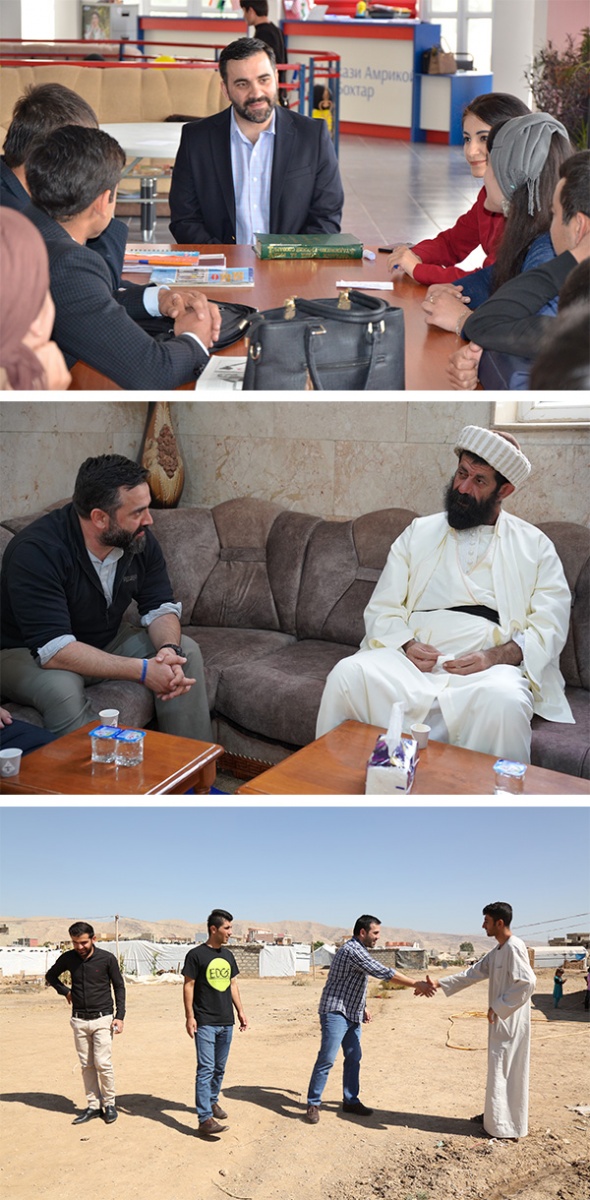
Middle: Bazzi meeting with Baba Chawsih, the guardian of Lalish temple of the Yazidi, a minority religious community in Iraq.
Bottom: Bazzi visiting Shariya camp for displaced Yazidi on the outskirts of Dohuk, Iraq.
(courtesy photos)
That said, Bazzi admits that “even the most pious or traditional Muslim would find it difficult to disagree that being more fit and healthy is just as good for women as it is for men.”
Isaac Eagan met Bazzi in 2015 when Eagan was SoA’s chief operating officer. Eagan recalls immediately hitting it off with a fellow Army infantryman who had served in Iraq. But Eagan also recalls being awestruck by Bazzi’s “deep affinity for, and knowledge of, the region,” as well as a clear ability to develop strong relationships rooted in trust.
Eagan was the one who brought Bazzi on board SoA.
“I think what sets Zack apart is his uncanny ability to do what I call strategic relationship building,” reflects Eagan. “With Zack, what starts out as a small project or intervention turns into something far bigger and more impactful.”
As an example, Eagan points to Bazzi’s work with Jordan’s Army War College. The relationship began when Bazzi furnished textbooks and other academic materials to the country’s premier military academic institution to build the nation’s counter-extremism capacity. Gradually, he developed a strong enough relationship with the college’s leadership that he was able to bring in a cast of senior policymakers, military officials and civil society leaders from across the region to share their approaches to countering extremism in a truly challenging “neighborhood.”
The icing on the cake was that the Jordanians were able take ownership of their own counter-extremism programs, an important accomplishment when you consider SoA is only 30 people worldwide and depends on maximizing the effectiveness of its partnerships with U.S. and host nation organizations.
Clearly a man of action, Bazzi displays an immigrant’s dual mindset when reflecting on his broader cultural identity. “To me, New Hampshire will always be my Shire, a pristine place of calm,” he says, while admitting that he chose his career path to be able to travel abroad and make a difference in the region where he was born. His military and humanitarian impact suggest he has found a way to wear both identities at the same time.
“As an immigrant to America, I am exceptionally patriotic,” he offers. “This is why I served in the military and continue to serve humanitarian efforts. To me, our country’s diversity, the layers and layers of humanity that have migrated here over the years, has made us into the exceptional country that we are. The more I see of the world — and I’ve seen a lot of it, not always at its best — the more I understand why I do what I do.”
-
Written By:
Dave Moore | Freelance Writer














































